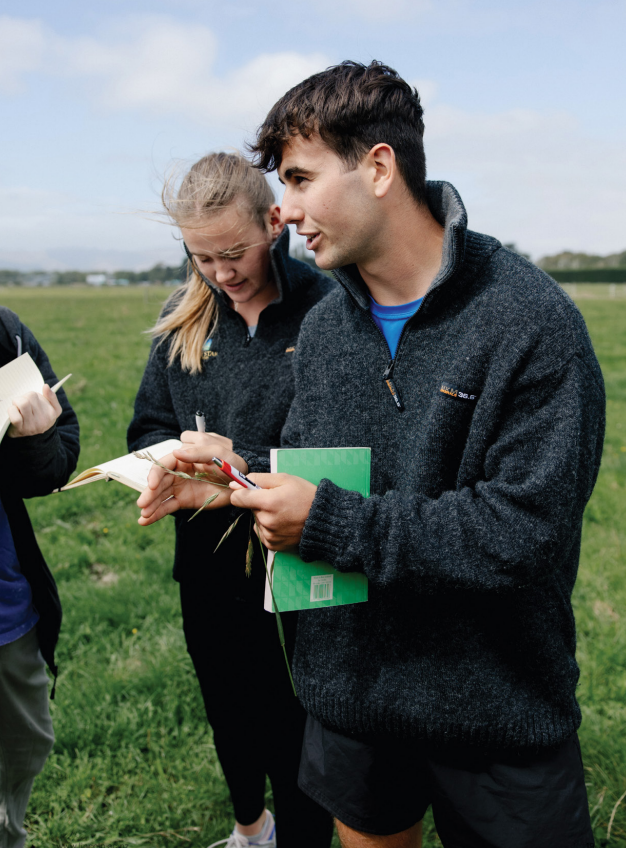
AROUND NGĀ MOTU

Farming Futures
Cultivating Tomorrow’s Leaders with Innovative Master of Environment and Agriculture.
The environmental and farming sectors need to come together if sustainability is to thrive, and Lincoln University plans to make that partnership happen.
The new Master of Environment and Agriculture programme is redefining how we think about food production and environmental stewardship, teaching students how to alleviate tension and bring the two sectors together in a productive way.
Lincoln University has been instrumental in shaping farming and environmental practices across New Zealand and the world. The new programme is a bold step forward on this pathway, enabling students to lead us to a more sustainable future.
The programme integrates cutting-edge research with practical skills, ensuring graduates can tackle the complex challenges facing our food systems and natural resources.
One of the most significant aspects of this new programme is its potential to heal the rift between agricultural and environmental interests, bringing us collectively into the future together.
Professor Christine Jasoni, Dean of Agriculture and Life Sciences at Lincoln University, feels this degree is a step in the right direction.
“Too often those two sectors have been at odds. The tension has to go away in order for our agriculture sector to continue innovating as we head down the path of becoming more environmentally sustainable.
“Moreover, there has been a failure to acknowledge that farmers in New Zealand have consistently stepped up in the face of changing expectations and markets. My hope with this degree is that we’ll effectively embed a future-focused mindset, which brings both of those views together in a balanced, non-contentious, non-emotionally challenging way.”
This idea – that environmental concerns and agricultural practices can be harmoniously integrated – is the cornerstone of the new programme.
The programme’s inception was inspired by a vision of progressive change, rooted in the belief that research sector innovation will drive the industry forward.
It isn’t just about teaching facts and figures; it’s about rewiring how students think about agriculture and the environment.
Take, for example, the course ‘The Soil, Plant, Animal, and Human Continuum in Ethical and Sustainable Agriculture.’ It’s not just about soil science, animal husbandry or human nutrition. It’s about understanding how all these elements interact in a complex dance of cause and effect.
Embracing Indigenous Wisdom and Modern Innovation
A unique aspect of this programme is its strong emphasis on Māori perspectives and practices in agriculture. By incorporating indigenous knowledge alongside cutting-edge research, Lincoln University is fostering a more inclusive and culturally responsive approach to sustainable land management. This blend of traditional wisdom and modern innovation positions graduates to collaborate effectively with diverse stakeholders, including iwi and Māori agribusinesses.
So, what’s the endgame here? Professor Jasoni paints a picture of graduates who might go into farming and change practices on the ground, or who could go on to provide consultancy or shape future policy.
Lincoln University is betting on a simple idea: by bridging the gap between environmental concerns and agricultural practices, we can create a more sustainable future. They’re not just teaching students about farming — they’re cultivating a new generation of systems thinkers who can see the big picture.
To find out more about Lincoln’s Master of Environment and Agriculture please contact [email protected]
